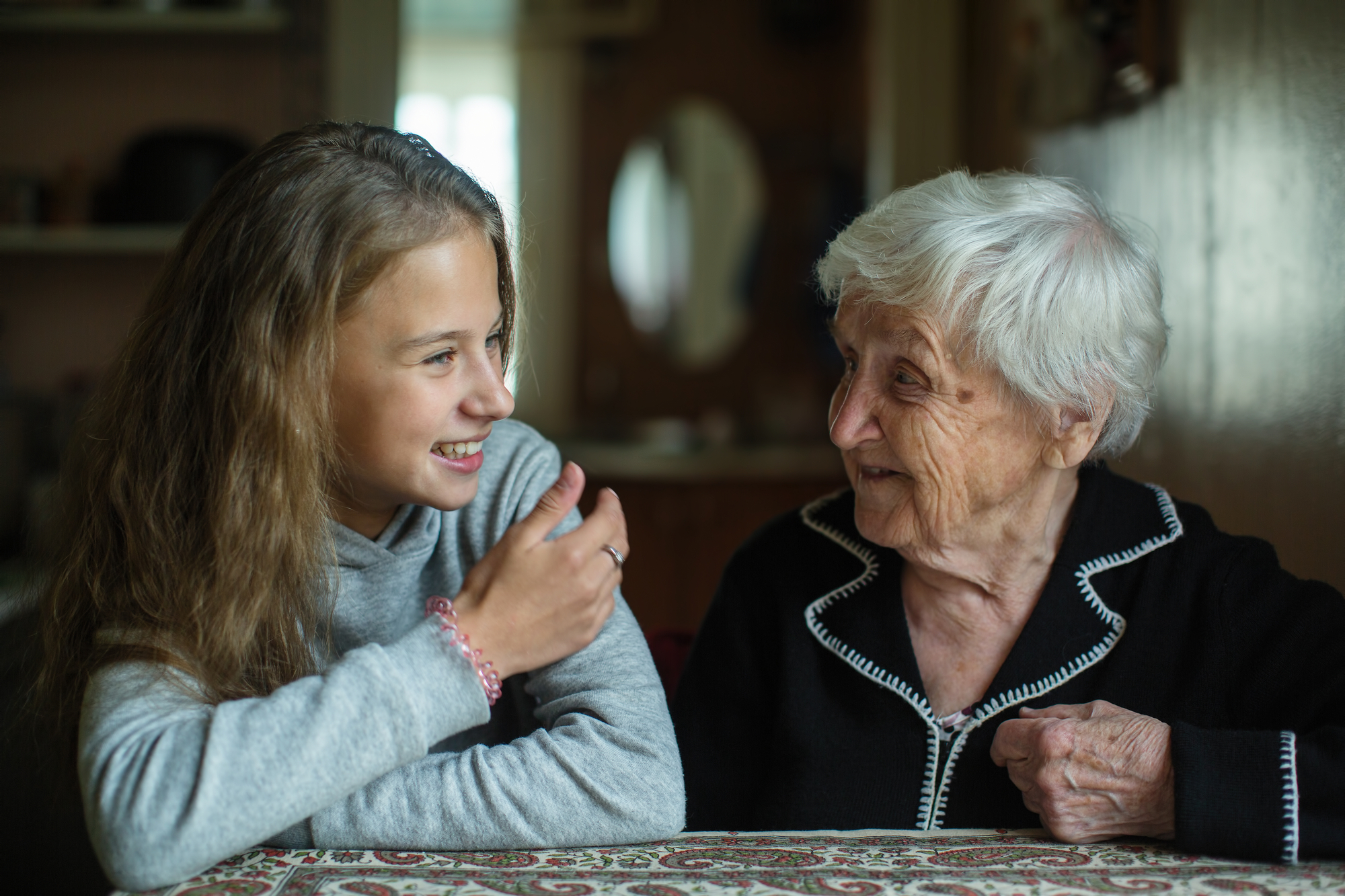In the field of pastoral thanatology, compassionate care plays a crucial role in supporting individuals through the final journey of life. This article explores various aspects of pastoral thanatology and its application in providing empathetic and supportive care to those experiencing loss and grief. From therapeutic relationships to specialized training in grief counseling, each section delves into essential practices for promoting healing and resilience in the face of loss.

Key Takeaways
- Authenticity and support are key in therapeutic relationships for promoting individual strengths and goals.
- Navigating loss with supportive guidance is essential for coping with grief and bereavement.
- Insight into anticipatory grief and traumatic death is crucial for understanding bereavement.
- Utilizing personalized interventions and active listening can help address stuck points in adapting to loss.
- Diverse approaches like hypnotherapy, spiritual counseling, and pet loss grief support offer compassionate care for individuals coping with loss.
Exploring the Role of Pastoral Thanatology in Compassionate Care
It is important to note, many healthcare professionals lack a bed side manner that is conducive helping patients face death. Many find it difficult to discuss death, or tell family members a loved one is going to die. Many physicians and nurses look to avoid or designate an individual to be the bearer of bad news. Many see it as a failure and not as an opportunity to further treat the patient also from an emotional standpoint. It is essential that healthcare professionals have an understanding of death and how to properly communicate it with patients and family.
It is also equally important that healthcare facilities become better equipped to handle end of life diagnosis or death news. Protocols should exist, as well as special designated areas to discuss sensitive news. Preparation of how the news is delivered, as well as preparation for emotional responses of patients and families need addressed. Hospitals and other health facilities should have a clear protocol and plan and place to help grieving families deal with bad news and death.

Studies in Pastoral Thanatology and Kubler-Ross five stages of dealing with terminally ill patients is an excellent starting point. AIHCP offers certifications and education for healthcare professionals to better be equipped to handle end of life issues in medical facilities. Those certified in Pastoral Thanatology can help the grieving better learn of terminal diagnosis and be better equipped to help them deal with the news. With better communication, proper vocabulary, preparation, empathy and a safe place to discuss, horrible news can be delivered in a less traumatic way.
Authenticity and Support in Therapeutic Relationships
In the realm of pastoral thanatology, the therapeutic relationship is the cornerstone of compassionate care. Trust, honesty, and a commitment to growth are pivotal in creating a supportive environment conducive to healing and transformation. The authenticity of the caregiver in these relationships is not just beneficial but essential, as it fosters a space where individuals can express themselves without judgment and embark on a journey of self-discovery.
- Authenticity in the caregiver-patient relationship
- Trust and honesty as foundational elements
- Commitment to personal growth and collaboration
The process of reframing unhealthy thought patterns and shifting the inner narrative is a critical aspect of the therapeutic journey. It is through this collaborative effort that individuals can confront the concerns of life and develop practical strategies for change.
A compassionate and dedicated approach, which integrates traditional psychotherapy with holistic perspectives, allows for the customization of techniques to the individual’s unique challenges. This personalized method supports the path to healing and personal growth, providing a safe space for exploration and the expression of thoughts, feelings, and challenges.
Promoting Individual Strengths and Goals
In the realm of pastoral thanatology, the emphasis on promoting individual strengths and goals is paramount. The therapeutic journey is tailored to honor the personal, emotional, cultural, and spiritual needs of each individual. This approach is not only client-centered but also strength-based and goal-oriented, aiming to empower clients to navigate their needs within a safe space.
We need to enhance our ability to respond to people’s individual wishes so that we can provide quality and respectful care.
Clients who are self-motivated and have clear goals often face challenges that are exacerbated by mental health issues. It is crucial for them to identify their strengths and weaknesses and be willing to engage in the process of growth and change. Openness to new coping strategies and ways of thinking can facilitate learning and growth, leading to the achievement of health and wellness goals.
The following list exemplifies common goals that clients may wish to pursue:
- Reduce anxiety or depression’s impact on daily life
- Improve interpersonal well-being and communication
- Identify treatment or occupation-related recommendations
- Enhance intra-personal understanding and self-esteem
Each goal is approached with a holistic and strengths-based perspective, ensuring that the care provided is attuned to the unique challenges and aspirations of the individual.
Navigating Loss with Supportive Guidance
In the realm of pastoral thanatology, the journey through loss is not one to be undertaken alone. Supportive guidance is a cornerstone of compassionate care, providing a beacon of hope and direction amidst the tumult of grief. Navigating the complexities of loss requires a multifaceted approach, where the bereaved are met with empathy, understanding, and practical strategies for coping.

- The role of the thanatologist is to act as a guide, offering a safe and nonjudgmental space for individuals to express their grief.
- By promoting authenticity and supporting individual strengths, the thanatologist fosters a therapeutic relationship grounded in trust.
- Personalized interventions are tailored to each person’s unique experience of loss, ensuring that the support provided is as effective as it is compassionate.
In this supportive role, the thanatologist empowers the bereaved to identify and utilize their own strengths and resources. This empowerment is crucial in helping individuals adapt to their loss and find a path forward.
The ultimate goal is to help survivors on their journey towards recovery, equipping them with the tools and understanding necessary to embrace their grief and emerge with renewed purpose.
Understanding Bereavement through Hospice Social Work Experience
Insight into Bereavement
With 16 years of experience as a Hospice Social Worker, the depth of understanding in bereavement has expanded significantly. This experience encompasses a range of areas including anticipatory grief, traumatic death, and the loss of health. Bereavement is not a uniform experience; it varies widely among individuals and can manifest as grief anxiety or difficulty with life transitions.
Bereavement is a deeply personal journey, and the role of a Hospice Social Worker is to provide a supportive presence, guiding individuals through their unique process of grief.
The therapeutic approach in grief therapy is to offer short-term, goal-oriented support. It involves a variety of strategies and techniques from different therapeutic practices, all aimed at meeting grievers where they are. This personalized approach ensures that each individual’s experience is validated and that they receive an impactful learning experience.
Grief is the natural response to loss, and it is important to recognize that it does not have a set timeline. The process of adapting to loss involves reaching certain healing milestones and addressing any stuck points. Active listening and personalized interventions are crucial tools in assisting individuals to cope with their loss.
Focus on Anticipatory Grief and Traumatic Death
Anticipatory grief and traumatic death present unique challenges in the realm of bereavement. Anticipatory grief, the mourning that occurs when a death is expected, often involves a complex mix of emotions, including fear, sadness, and even relief. Traumatic death, on the other hand, can lead to sudden and overwhelming feelings of shock and disbelief.
In addressing these forms of grief, it is crucial to tailor therapeutic practices to the individual’s experience. A Hospice Social Worker, with years of experience in grief counseling, brings a depth of understanding to these sensitive areas. The therapeutic journey may include a variety of strategies, such as:
- Cognitive-behavioral techniques to manage grief anxiety
- Narrative therapy to process the story of loss
- Mindfulness practices to cope with emotional pain
The goal is to provide a supportive and impactful learning experience that acknowledges grief as a natural response to loss, without a set time limit. Healing milestones are achieved by meeting grievers where they are, utilizing active listening, and offering personalized interventions.
Certification in specialized areas such as Complicated Grief Treatment and the Grief Recovery Method enhances the ability to support those navigating these difficult waters. The integration of various therapeutic practices ensures that each individual’s path to coping is both respected and facilitated.
Utilizing Therapeutic Practices for Impactful Learning
In the realm of pastoral thanatology, the application of different therapeutic practices is crucial for meeting grievers where they are, facilitating a journey of self-discovery, and fostering an impactful learning experience. The therapeutic process is not a one-size-fits-all; it is tailored to the individual’s unique path through grief, which is a natural response to loss without a prescribed time limit. The therapeutic journey involves a partnership with clients, guiding them to reframe unhealthy thought patterns and shift their inner narrative towards healing.
Continuous education and self-reflection are imperative for caregivers to remain attuned to the evolving needs of those they serve. This commitment ensures that the therapeutic environment is one where survivors feel understood, respected, and valued. The ultimate goal is to empower individuals by helping them maximize strengths and improve well-being through appropriate therapeutic recommendations. AIHCP and the American Academy of Grief Counseling offers an in-depth program in Pastoral Thanatology for healthcare professionals and those in ministry.
Navigating the Complexities of Grief Therapy
Short-Term Therapy with Clear Goals
In the realm of grief therapy, short-term interventions are designed with the intention of providing immediate relief and a clear path forward for individuals grappling with loss. The focus is on establishing attainable goals that align with the client’s personal strengths and desired outcomes.
Short-term therapy often employs evidence-based practices such as cognitive-behavior therapy (CBT), mindfulness, and solution-focused brief therapy. These modalities are chosen for their proven efficacy in helping clients to manage symptoms of grief and to foster resilience.
The therapeutic journey in short-term therapy is a collaborative one, where the therapist and client work together to identify areas of strength and weakness, and to develop strategies for coping and growth.
Clients suitable for this approach are typically self-motivated and have clear objectives that may be hindered by their emotional state. The table below outlines common goals and the corresponding therapeutic techniques that may be utilized:
| Client Goals | Therapeutic Techniques |
|---|---|
| Reduce anxiety and depression | CBT, Mindfulness |
| Improve daily functioning | Solution-Focused Brief Therapy |
| Enhance self-esteem | Strengths-Based Approaches |
| Foster personal growth | Mindfulness, Matrix Model |
By setting clear goals and employing targeted techniques, short-term therapy can provide a structured yet flexible framework for individuals to navigate their grief and begin the healing process.
Meeting Grievers with Various Techniques
In the realm of grief therapy, the diversity of techniques available to practitioners is as varied as the individuals seeking support. Grief is the natural response to loss, and it manifests uniquely across different people. To address this, therapists employ a range of strategies, each tailored to the specific needs and circumstances of the griever.
The therapeutic journey in grief counseling is not a one-size-fits-all process. It requires a nuanced approach that respects the individuality of each person’s experience with loss.
Some of the techniques used in grief therapy include Narrative Therapy, which offers the right combination of structure and flexibility to meet grievers wherever they’re at in the messy, nonlinear grieving process. Additionally, practices such as Complicated Grief Treatment and EMDR (Eye Movement Desensitization and Reprocessing) are utilized to help individuals process their emotions and adapt to their new reality.
- Narrative Therapy: Helps individuals re-author their life stories after loss.
- Complicated Grief Treatment: Addresses prolonged grief disorders with targeted interventions.
- EMDR: Aids in the processing of traumatic memories associated with loss.
Each technique is a tool in the broader therapeutic toolkit, designed to confront and process emotions in a way that is both compassionate and effective.
Embracing the Natural Response to Loss
Grief, as a natural response to loss, encompasses a spectrum of emotions that individuals must navigate through. It is a deeply personal journey, one that does not adhere to a prescribed timeline or set of stages. The process of grieving is unique to each person, and as such, therapeutic approaches must be flexible and responsive to the individual’s needs.

The goal of grief therapy is not to hasten the bereavement process but to provide a supportive space where individuals can express their emotions and learn to adjust to life without their loved one.
Therapists employ various techniques to meet grievers where they are, recognizing that grief does not simply ‘go away’ but rather, we evolve in our relationship with it. Below is a list of common therapeutic practices:
- Active listening and empathic presence
- Personalized interventions tailored to the individual’s coping style
- Assignments that encourage reflection and processing of emotions
- Education on the nature of grief and its impact
By embracing grief as a natural part of life, therapists can help individuals find a path forward, acknowledging the pain of loss while fostering resilience and healing.
Specialized Training and Certification in Grief Counseling
Complicated Grief Treatment
Complicated Grief Treatment (CGT) is a specialized therapeutic approach designed to address the unique and persistent form of bereavement known as complicated grief. This condition is characterized by an extended grieving period and the inability to progress through the typical stages of grieving. Trained experts in CGT aim to guide individuals through a structured process that helps them confront the loss and gradually reduce the symptoms of grief that interfere with daily living.
The treatment typically involves several components:
- Establishing a therapeutic relationship and setting a safe space for sharing.
- Identifying and confronting emotions and thoughts related to the loss.
- Developing coping strategies and tools to manage intense emotions.
- Working on personal goals and finding meaning after the loss.
Complicated Grief Treatment is not a one-size-fits-all solution; it is tailored to meet the specific needs of each individual. The process is collaborative, with the therapist and client working together to create a path toward healing.
By engaging in CGT, individuals can learn to adapt to their loss and move forward with their lives, while still honoring the memory of their loved one.
AIHCP offers an online and independent study Grief Counseling Certification, as well as a Pastoral Thanatology Certification for qualified professionals.
Personalized Interventions for Coping with Loss
In the realm of pastoral thanatology, personalized interventions are pivotal for individuals coping with loss. Each person’s grief journey is unique, and thus requires tailored strategies that resonate with their specific needs and circumstances. Personalized interventions may include a variety of therapeutic techniques, each chosen for its potential to facilitate healing and growth.
- Active Listening: Creating a space where individuals feel heard and validated.
- Homework Assignments: Encouraging engagement with the therapeutic process outside of sessions.
- Complicated Grief Treatment: Addressing prolonged and intense grief reactions.
- EMDR (Eye Movement Desensitization and Reprocessing): Aiding in the processing of traumatic memories associated with loss.
Personalized interventions are not a one-size-fits-all solution; they are carefully crafted to support individuals in recognizing and honoring their unique paths through grief.
The efficacy of these interventions is often enhanced by the practitioner’s ability to identify and address ‘stuck points’—specific areas where an individual may struggle to adapt to loss. By utilizing tools such as active listening and specific therapeutic practices, caregivers can assist in moving past these hurdles, fostering a sense of progress and hope.
Healing Milestones and Personalized Interventions
Addressing Stuck Points in Adapting to Loss
In the journey of grief, individuals may encounter stuck points that hinder their adaptation to loss. These are moments or areas where the bereaved feel unable to move forward, often trapped by persistent thoughts or emotions. Addressing these stuck points is crucial for healing milestones to be reached.
Active listening and personalized interventions are key in assisting individuals to navigate through these challenging junctures. By employing specific tools, caregivers can help the bereaved to cope and gradually adapt to their new reality.
The process of adapting to loss is not linear and requires a tailored approach for each individual. Therapeutic practices, such as Complicated Grief Treatment and EMDR, are designed to meet grievers where they are, offering impactful learning experiences that acknowledge grief as a natural response to loss. Certified specialists in grief recovery are equipped with a variety of techniques to facilitate this process.
Survivors embarking on the path to recovery benefit from a supportive environment that encourages exploration and expression of their grief. This support is essential in transforming their relationship with loss, allowing for a gradual and healthy adaptation.
Utilizing Active Listening for Healing
Active listening stands as a cornerstone in the process of healing, particularly in the context of pastoral thanatology. It involves a full presence and attentiveness to the bereaved, fostering a safe space where their feelings and thoughts can be expressed without judgment. Active listening is rarely taught to those in pastoral roles, yet it is crucial for facilitating healing milestones and addressing stuck points in adapting to loss.
The practice of active listening extends beyond mere hearing. It requires the listener to engage with empathy, reflecting and clarifying the speaker’s message, and withholding personal judgments or advice unless solicited. This approach not only validates the individual’s experience but also empowers them to explore their emotions and thoughts more deeply.
The journey of grief is unique to each individual, and active listening honors this by tailoring support to the person’s specific needs and story. It is an act of self-care for the bereaved to seek out a listener who can truly hear them, and it is a powerful step in the healing process.
By utilizing active listening, pastoral caregivers can help individuals find their own path to healing, using evidence-based practices and a mind-body connection. The goal is to assist in a healthy and emotionally intelligent manner, allowing the client to put in the necessary work to heal themselves, with the support of therapeutic techniques when needed.
Tools for Coping with Loss
In the journey of adapting to loss, individuals often reach a point where traditional coping mechanisms may no longer suffice. Developing a toolkit of strategies is essential for those seeking to navigate the complexities of grief. These tools are not one-size-fits-all; they must be tailored to the individual’s unique experience and needs.
Effective coping strategies may include a combination of reflective practices, such as journaling or creative expression, and active approaches like structured problem-solving or physical activity. It is crucial to recognize the value of each tool and its potential impact on the healing process.
- Journaling to process emotions
- Creative outlets like art or music
- Structured problem-solving techniques
- Physical activities to release tension
- Mindfulness and relaxation exercises
Embracing a variety of coping tools can empower individuals to find their path through grief, transforming their relationship with loss into one of growth and understanding.
Diverse Approaches to Supportive Care
Hypnotherapy and Meditation for Healing
In the realm of pastoral thanatology, hypnotherapy and meditation emerge as powerful tools for facilitating deep healing and self-discovery. Hypnotherapy, by accessing the subconscious, allows individuals to explore and reframe unhealthy thought patterns, while meditation fosters a mind-body connection essential for self-attunement and emotional regulation.
- Hypnotherapy can address trauma and depression-related disorders.
- Meditation promotes relaxation and stress management.
- Both practices encourage a holistic approach to healing.
Embracing these modalities within compassionate care can significantly enhance the therapeutic journey, offering a path to rewrite one’s narrative towards a more peaceful acceptance of loss.
The integration of these techniques into grief therapy is not only about symptom relief but also about empowering individuals to navigate their journey with greater resilience and understanding. The evidence-based practices of hypnotherapy and meditation contribute to a more profound healing process, acknowledging the cultural, spiritual, and environmental factors that impact an individual’s experience of loss.
Spiritual Counseling for Emotional Support
Spiritual counseling offers a unique dimension to emotional support, particularly in the context of grief and loss. It integrates the individual’s belief system into the therapeutic process, providing a holistic approach to healing. This form of counseling can be especially comforting for those who draw strength from their spiritual or religious convictions.

- Spiritual counseling can help individuals find meaning and purpose during times of loss.
- It may involve practices such as prayer, meditation, or rituals that are significant to the person’s faith tradition.
- Counselors trained in this modality are skilled at navigating the intersection of emotional distress and spiritual beliefs.
Spiritual counseling respects the diverse belief systems of individuals and aims to provide support in a manner that aligns with their values and worldview.
The effectiveness of spiritual counseling is often reflected in the way it helps individuals reconcile their inner emotional turmoil with their spiritual understanding. By doing so, it can facilitate a more profound sense of peace and acceptance.
Pet Loss Grief Support for Compassionate Care
The loss of a pet can be a profound and deeply personal experience, often equated with the loss of a human loved one. Pet loss grief support is an essential aspect of compassionate care, acknowledging the significance of this unique bond. It is important to explore compassionate tips on coping with pet loss to find solace and honor the memory of the beloved companion.
- Recognize the depth of your loss and allow yourself to grieve.
- Create a memorial or ritual to celebrate the life of your pet.
- Reach out to support groups or counseling services that specialize in pet loss.
- Engage in self-care practices and maintain routines to help navigate through grief.
Grief is the natural response to loss, and it doesn’t have a time limit. Grief doesn’t go away completely, but we change our relationship to it.
By addressing the emotional needs with sensitivity and understanding, individuals can move through their grief with the support of specialized interventions and therapeutic practices tailored to pet loss.
Exploring the myriad of ways to provide supportive care is essential in today’s diverse healthcare landscape. Our website offers a wealth of resources and certification programs, including the esteemed Pastoral Thanatology Certification, to enhance your knowledge and skills in this vital field. Whether you’re a healthcare professional seeking to expand your expertise or someone interested in the spiritual and psychological aspects of end-of-life care, we have something for you. Don’t miss out on the opportunity to elevate your practice and make a meaningful difference. Visit our website now to learn more and register for our courses.
Conclusion
In conclusion, the field of pastoral thanatology plays a crucial role in providing compassionate care to individuals facing the final journey of life. Through the expertise and dedication of professionals like myself, who are trained in various therapeutic practices and techniques, grievers are supported in navigating the complexities of loss and grief. The emphasis on authenticity, empathy, and nonjudgmental support creates a safe space for individuals to explore their emotions and find healing in the midst of bereavement. As we continue to embrace the challenges of loss and transition, the integration of personalized interventions and specialized tools offers a holistic approach to coping with the inevitable changes that life presents. Ultimately, pastoral thanatology serves as a guiding light, illuminating the path towards acceptance, healing, and resilience in the face of loss.

AIHCP offers an online certification program in Pastoral Thanatology. The program is online and independent study and open to qualified professionals seeking a four year certification in Pastoral Thanatology. Healthcare professionals as well as clergy and those in active ministry are excellent candidates.
Frequently Asked Questions
What is pastoral thanatology and its role in compassionate care?
Pastoral thanatology focuses on providing compassionate care to individuals navigating the final journey of life and coping with loss. It involves supporting individuals in a safe and empathic environment, encouraging authenticity, and guiding them to cope with loss.
How does hospice social work experience contribute to understanding bereavement?
Hospice social work experience provides insights into bereavement, anticipatory grief, traumatic death, and other aspects of loss. It emphasizes short-term therapy with clear goals and utilizes various therapeutic practices to offer impactful learning experiences.
What are the key components of grief therapy in dealing with loss?
Grief therapy involves meeting grievers with different techniques, embracing the natural response to loss, and setting clear goals for short-term therapy. It focuses on helping individuals adapt to loss and cope with grief effectively.
What specialized training and certifications are beneficial for grief counseling?
Specialized training in complicated grief treatment, certification as a grief recovery method specialist, and personalized interventions are valuable for grief counselors. These certifications enhance the ability to provide personalized support for coping with loss.
How can healing milestones and personalized interventions aid in coping with loss?
Healing milestones and personalized interventions help address stuck points in adapting to loss. Active listening and specific tools provided in therapy sessions assist individuals in coping with grief and moving towards healing.
What are some diverse approaches to supportive care in grief counseling?
Diverse approaches such as hypnotherapy, meditation, spiritual counseling, and pet loss grief support offer emotional and compassionate care for individuals experiencing loss. These approaches provide additional tools for coping and healing.
How does grief counseling support individuals in navigating the complexities of loss?
Grief counseling offers guidance and support to individuals experiencing the complexities of loss. It helps them understand and cope with grief, navigate the emotional journey, and develop personalized strategies for healing.
What are the benefits of utilizing therapeutic practices in grief counseling?
Therapeutic practices in grief counseling offer a range of techniques and strategies to meet individuals where they are in their grief journey. These practices provide a supportive and impactful learning experience, helping individuals process their emotions and cope with loss effectively.
Additional Resources
“Delivering Bad or Life-Altering News”. FRANKLIN J. BERKEY, DO, JOSEPH P. WIEDEMER, MD, AND NICKI D. VITHALANI, MD. (2018). American Family Physician. Access here
“Death in the hospital: Breaking the bad news to the bereaved family”. Naik, S. (2013). National Library of Medicine. Access here
“Dying Well-Informed: The Need for Better Clinical Education Surrounding Facilitating End-of-Life Conversations”. Sutherland, R. (2019). National Library of Medicine. Access here
Communicating a terminal prognosis in a palliative care setting: Deficiencies in current communication training protocols”. Wittenberg-Lyles, E., al etc. (2008). Science Direct. Access here










